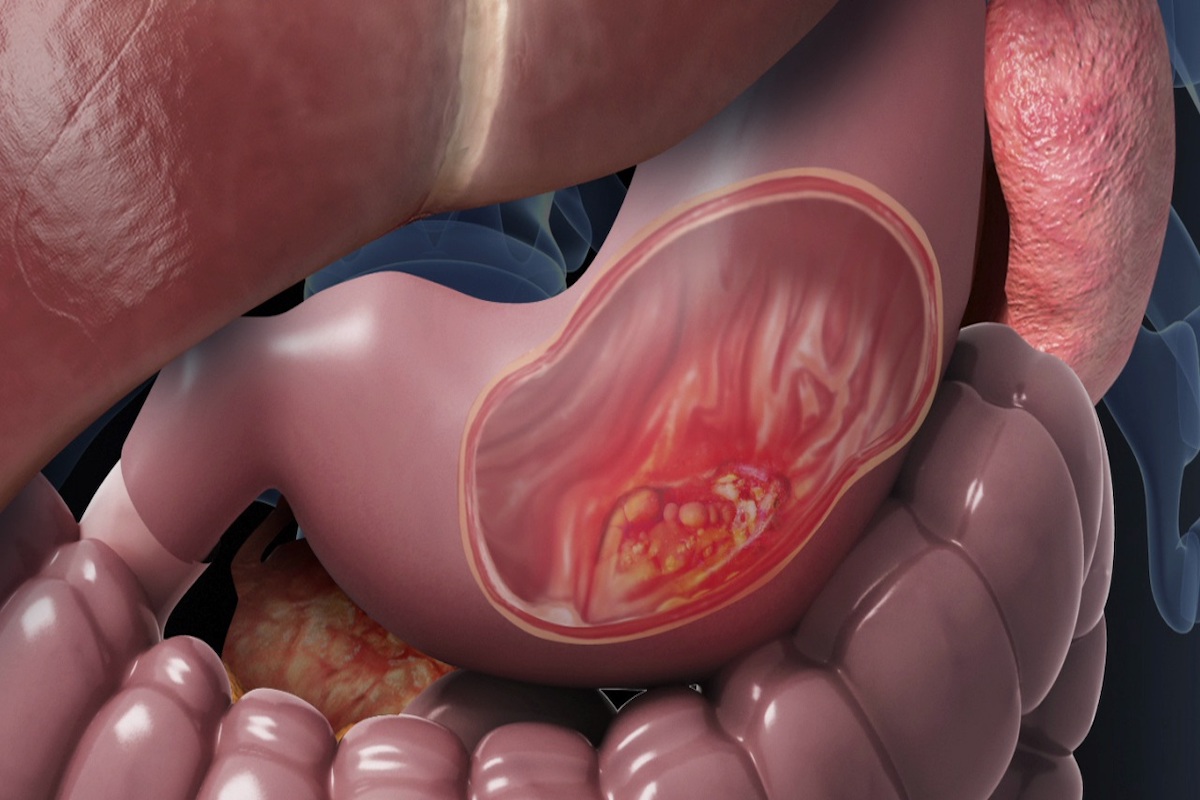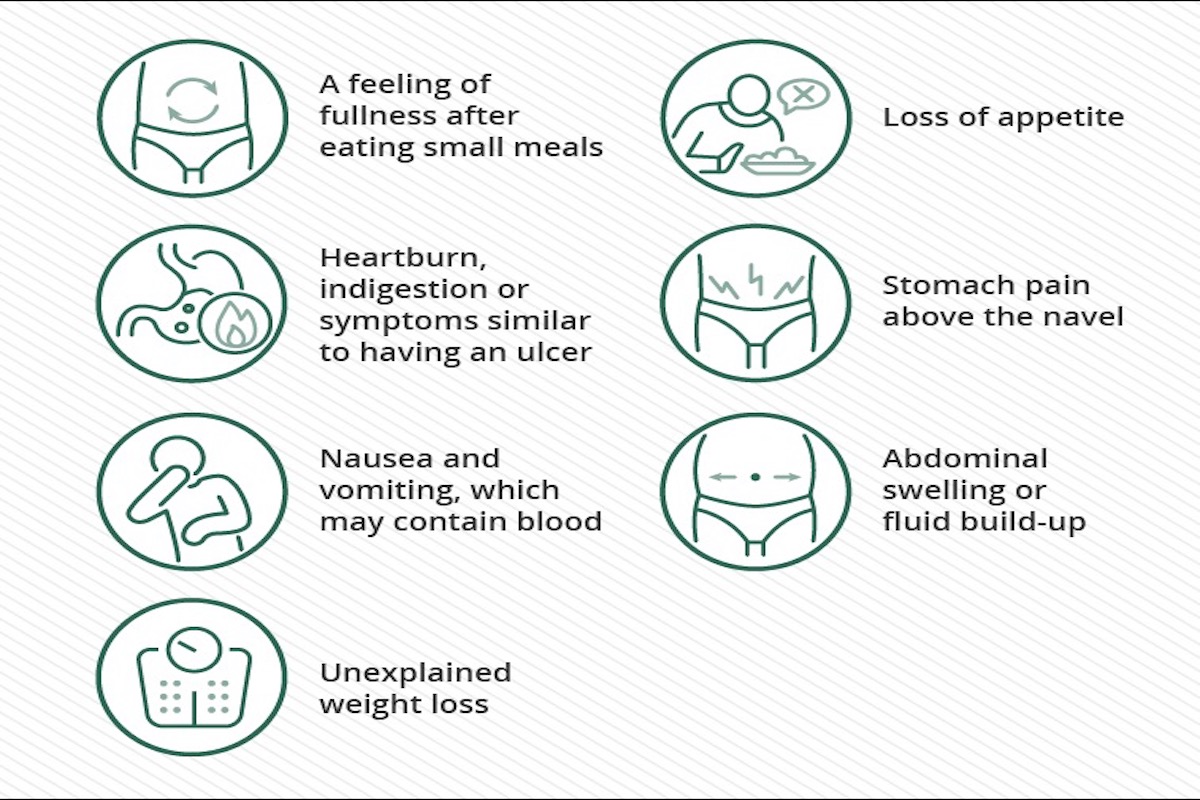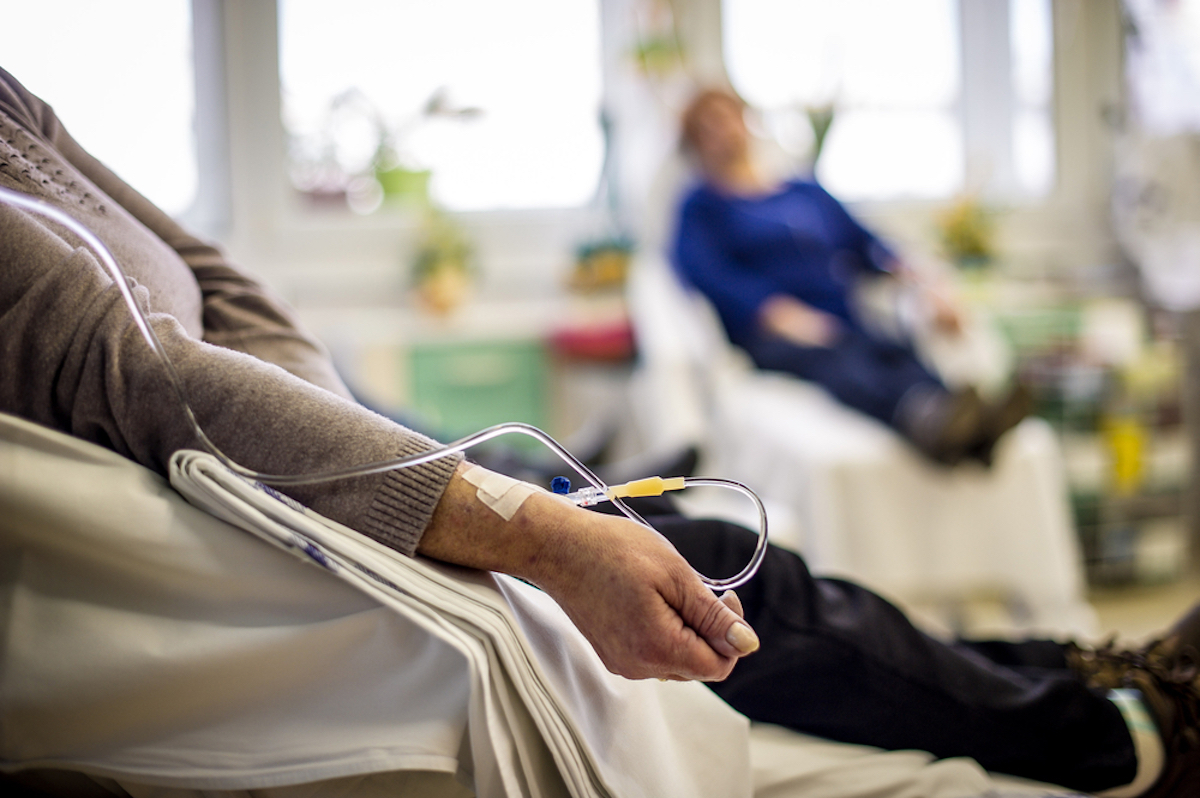Stomach cancer, also known as gastric cancer, affects numerous people in the United States. Although it’s not as common as some other cancers, it still causes a significant number of deaths. On average, about 26,240 people in the US are diagnosed with stomach cancer each year, and approximately 11,180 individuals lose their lives to this disease annually. Understanding the impact of this type of cancer is important for better prevention, early detection, and improved treatment options.

What Is Stomach Cancer?
Stomach cancer, also known as gastric cancer, is a disease that specifically targets the stomach. It occurs when there is an abnormal growth of cells in the lining of the stomach. These abnormal cells can multiply rapidly and form a tumor, which can be cancerous. If left untreated, stomach cancer can spread to nearby organs or even to distant parts of the body. It is a serious condition because it can affect the normal functioning of the stomach and its ability to digest food properly. It can also lead to complications such as ulcers, bleeding, and blockages in the digestive system.
Types & Causes of Stomach Cancer?
Stomach cancer can have different types, each with its own characteristics. Knowing about these types helps us understand the specific aspects of the disease. Here is a table that gives a simple overview of all the various types of stomach cancer.
Gastric Cancer Types
| Types of Stomach Cancer | Description |
|---|---|
| Adenocarcinoma | The most common type of stomach cancer, it develops in the glandular cells of the stomach lining. |
| Lymphoma | A cancer type that affects the lymphatic system and can involve the stomach. |
| Gastrointestinal stromal tumors (GISTs) | Rare tumors originate in the connective tissue cells of the stomach wall. |
| Carcinoid tumor | Slow-growing tumors arise from the hormone-producing cells of the stomach. |
| Leiomyosarcoma | Uncommon cancer develops in the muscle layer of the stomach wall. |
Unfortunately, there are several causes for this type of cancer. The more common causes are a prolonged chronic inflammation of the stomach (gastritis) often due to infection with Helicobacter pylori bacteria, or the Helicobacter pylori infection itself. Other causes are:
- Smoking
- Diet high in smoked, pickled, or salty foods
- Family history of gastric cancer
- Genetic factors
- Previous stomach surgery
- Pernicious anemia
- Exposure to asbestos, coal dust, or metalworking fluids
- Epstein-Barr virus infection
Undiagnosed stomach cancer can lead to various complications that can significantly affect a person’s health. As the cancer grows and spreads, it can cause significant damage to the stomach and nearby organs. For example, it may block the passage of food through the digestive system, leading to difficulty swallowing, persistent indigestion, or unintentional weight loss. Stomach cancer can also cause bleeding in the digestive tract, resulting in vomiting of blood or blood in the stool.

If cancer spreads to other parts of the body, it can lead to complications specific to those areas, such as bone pain, jaundice (yellowing of the skin and eyes), or fluid accumulation in the abdomen. This is why it’s crucial to know – and remember -the signs. The sooner you get diagnosed, the better the chances.
Symptoms of Stomach Cancer
Gastric cancer, or stomach cancer, can exhibit various symptoms. The two most common symptoms are persistent indigestion and stomach pain. Indigestion refers to a feeling of discomfort or fullness in the upper abdomen after eating, while stomach pain can range from mild discomfort to severe and persistent pain. Other symptoms of gastric cancer may include:
- Unexplained weight loss
- Nausea and vomiting
- Difficulty swallowing
- Feeling full quickly
- Blood in the stool
- Fatigue and weakness
- Anemia
Stages of Stomach Cancer
Cancer staging can be overwhelming, this is why we made a clear overview of what stages there are for gastric cancer and what each stage entails. We’ve also added the most common symptoms for each stage, to give you a good idea of how bad it can be. Please note that these symptoms are general indications and can vary from person to person. Also, note that the staging of gastric cancer may involve more specific subcategories based on the extent of tumor invasion and lymph node involvement.
Gastric Cancer Stages Overview
| Stage of Gastric Cancer | Description | Common Symptoms |
|---|---|---|
| Stage 0 | Cancer cells are found only in the innermost layer (mucosa) of the stomach lining. | Indigestion, Mild stomach discomfort |
| Stage I | Cancer has grown beyond the mucosa into the deeper layers of the stomach wall. It may or may not involve nearby lymph nodes. | Abdominal pain or discomfort, Unexplained weight loss |
| Stage II | Cancer has spread further into the stomach wall and may have reached nearby lymph nodes. | Persistent bloating, Fatigue |
| Stage III | Cancer has invaded deeper layers of the stomach wall and has spread to nearby lymph nodes. It may also involve nearby organs or structures. | Difficulty swallowing, Abdominal swelling, Persistent nausea |
| Stage IV | Cancer has spread to distant organs or tissues outside the stomach, such as the liver, lungs, or bones. This is also referred to as metastatic or advanced gastric cancer. | Severe abdominal pain, Jaundice (yellowing of the skin and eyes), Shortness of breath |
It’s important to consult with a healthcare professional for accurate information and to understand the specific staging of an individual’s gastric cancer and symptoms.
Stomach cancer is diagnosed through a series of medical evaluations. First, a healthcare professional will discuss your symptoms and medical history. They may perform an upper endoscopy, using a thin tube with a camera to look inside your stomach and take tissue samples for testing (biopsy). Imaging tests like CT scans, MRI, or PET scans may be done to see if cancer has spread. Blood tests can check for certain markers that indicate stomach cancer. All these tests help doctors determine if you have stomach cancer, its stage, and how far it has spread.

Are There Treatment Options?
Treatment options for gastric cancer depend on various factors such as the stage of cancer, the location of the tumor, and the overall health of the patient. Treatment plans are tailored to each individual and may involve a combination of options. Common treatment options for gastric cancer include:
- Surgery: It involves removing the tumor and a portion of the healthy surrounding tissue. In some cases, the entire stomach may need to be removed (total gastrectomy).
- Chemotherapy: Powerful drugs are used to kill cancer cells or stop their growth. Chemotherapy can be administered before surgery (neoadjuvant) to shrink the tumor, after surgery (adjuvant) to destroy any remaining cancer cells, or as the primary treatment for advanced or metastatic cases.
- Radiation therapy: High-energy beams such as X-rays are targeted at the cancerous cells to destroy them or prevent their growth. It can be used before surgery to shrink the tumor or after surgery to kill the remaining cancer cells.
- Targeted therapy: Certain drugs target specific abnormalities or genetic mutations in cancer cells, blocking their growth or promoting their destruction.
- Immunotherapy: This treatment stimulates the body’s immune system to recognize and attack cancer cells
Prevention Tips
Maybe the biggest question is: Can we prevent it? Well, while it is not always possible to prevent gastric cancer entirely, certain measures can help reduce the risk of developing the disease. These preventive measures include healthy lifestyle choices, like quitting smoking, having a healthy diet, limiting alcohol consumption, and making sure you go to your regular medical check-ups.
There are so many ways to treat cancer these days, the above-mentioned are just a few examples. Sometimes they are combined, but it can also happen that these treatments do not help (anymore), so other options should be considered. That’s why it’s essential to do your own extensive online research and stay up to date about new treatments. Have you already been diagnosed with colon cancer, but aren’t satisfied with your treatment plan? Doing a second opinion in another hospital or oncology center is always good. Start your search today:

